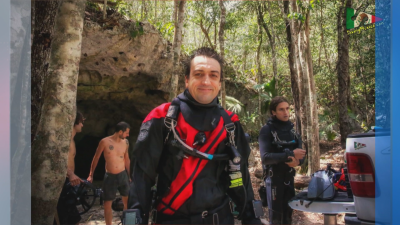A partial state of emergency was declared in the village of Hayredin, Vratsa district, (North-Western Bulgaria) on April 28 following severe flooding. Nearly 48 hours after the torrential rain, several streets remain impassable due to destroyed asphalt pavement. Today, damage assessments began, with local authorities hoping for assistance from the state.
The most affected villages are Lehchevo and Kobylyak, where nearly 110 litres of rain per square meter fell. In Lehchevo alone, nearly 70 houses were flooded, prompting the evacuation of residents.
Dozens of homes were flooded in Hayredin, Kobylyak, Valchedram, and Mokresh as well. Local authorities called for help from volunteers, while residents appealed for state assistance.
More than 100 houses were flooded in Hayredin, with nearly 20 of them completely underwater. Infrastructure damage is extensive, with asphalt pavement completely destroyed in some areas. Farmland was also inundated. A young family with two children was evacuated, and dozens of vehicles were trapped in rising waters.
Mud, sludge and torn-up streets — that’s the scene in the village of Hayredin after torrential rains triggered severe flooding. Nearly 100 properties have been affected.

Dimitrina Yancheva: "We've lived here for years, and we've never seen anything like this. The water came from the neighboring village, and it was terrifying — a roaring sound."
Eliza Ilieva: "This wasn't just the Ogosta River flowing here — it looked like the Danube."
Nikola Asenov: "It rained heavily for six hours. The canal in my garage is completely flooded."
The surge also caused significant damage to local farmers.

Angel Stefanov, farmer: "Around 30 decares (approx. 7.4 acres) are completely gone. I had planted sunflowers — all of it is destroyed."
Many village streets are completely impassable due to eroded asphalt.
Todor Todorov, Mayor of Hayredin Municipality:
"The infrastructure is totally compromised. We can’t even clean it up, let alone restore it. I hope the Disaster and Emergency Commission steps in and helps us. so called Zlatiyata area, the catchment area is extremely large and with this intense rain that has fallen in a very short time it all drained here. It was like two reservoirs pouring through this street. I’m 54 years old, and I’ve never seen anything like it."
An interdepartmental commission has begun documenting the damage, while social service teams have visited affected households. Those impacted may receive compensation of up to 1,914 BGN for damaged property.
In the nearby village of Botevo, the drinking water is deemed unfit for consumption. The reason — torrential rains have flooded the village’s pumping station.
Nikolay Nikolov, District Governor of Vratsa:
"In Botevo, drinking water is not safe. We've coordinated with Angel Prestoyski, and he confirmed that four water tanks have been delivered to ensure the population has access to clean drinking water."
Why residents of Hayredin weren’t warned by the BG-Alert system
It has become clear why residents weren’t notified of the disaster via the BG-Alert emergency warning system. According to the Minister of Interior, the system does not activate automatically — it must be triggered by trained personnel designated by the local authorities.

Daniel Mitov, Minister of Interior:
"When it comes to threats of local significance, the responsible parties are district governors and mayors — like in Hayredin and Boychinovtsi. They were supposed to prepare and send alerts via the BG-Alert interface so that notifications could be sent to users with the system installed. That didn’t happen — not due to system failure, but because the municipal administrations never designated or trained anyone to use the system."
Mitov added that out of all municipalities in the country, only 98 have submitted requests for training. In Vratsa district, just 3 of the 10 municipalities have trained teams; in Montana, only one municipality is prepared.








 Чуй новините
Чуй новините Подкаст
Подкаст


























